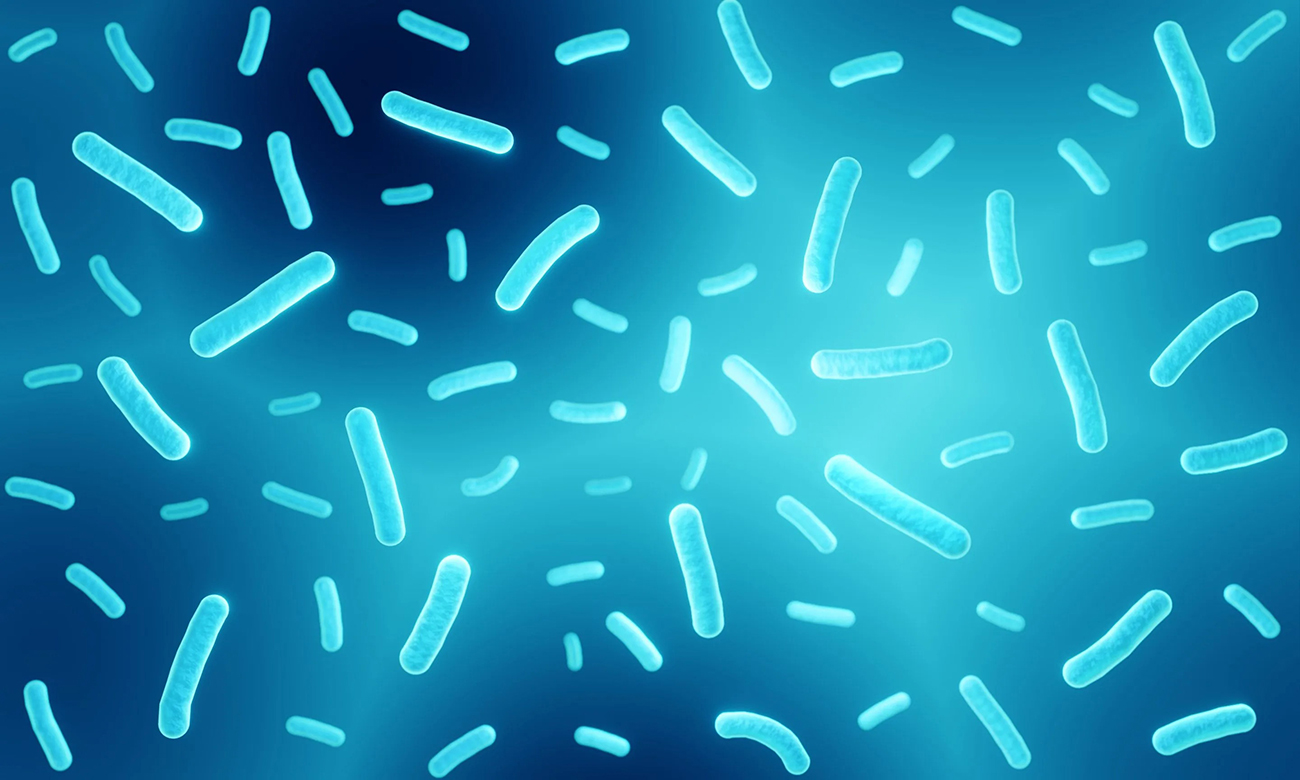
在美国,与饮食相关的慢性疾病已经到了关键时刻。
美国近一半的人口患有前驱糖尿病或糖尿病。超过40%的人超重或肥胖。65岁以上的人群中有九分之一患有阿尔茨海默病,研究人员正在探索饮食在该病发展中的潜在作用。不良饮食习惯还与心理健康状况不佳、心血管疾病和癌症有关。在美国,它造成了近五分之一的死亡,2016年美国与此相关的医疗保健支出超过1400亿美元。
虽然美国人的腹型肥胖越来越严重,但研究表明,肠道微生物群(生活在我们消化道中的细菌)和生产能量的细胞器(线粒体)仍然渴望获得美国人饮食中摄入不足的营养物质。
我是一名临床科学家和胃肠病学家,花了20多年时间研究食物如何影响肠道微生物群和全身健康。超加工食品在美国人的饮食中所占的比例越来越大,使得人体摄入的食物中缺乏重要的营养物质。补充这些营养物质可能对健康很重要,部分原因是可以为微生物群和线粒体提供营养物质,使得微生物群和线粒体将食物转化为能量。
你的健康取决于你吃什么
研究表明,地中海饮食和其他天然食品饮食与更好的健康状况和更长的寿命有关,而超加工食品和饮料,如苏打水、薯片和快餐等,与糖尿病、心血管疾病、癌症和其他疾病等不良健康结果有关。
但改善一个人的饮食是一项挑战,更不用说改善美国人的饮食了。对于现代人的生活方式和喜好来说,天然食品有时不太方便,也不太美味。此外,食品加工是有益处的,可以防止变质和延长保质期。特别是全谷物加工通过去除胚芽和麸皮来延长保质期,否则会迅速变质。长期储存可负担的卡路里有助于解决粮食不安全问题(公共卫生领域的主要挑战)。
围绕饮食的许多公共健康对话都集中在要避免摄入哪些物质:添加糖和精制碳水化合物、某些脂肪、盐和添加剂。但是,现代食品加工虽然增加了某些营养素的浓度,却去除了其他关键营养素,产生了潜在的长期健康成本。在饮食中补充哪些物质同样重要:纤维、植物营养素、微量营养素、摄入不足的脂肪和发酵食品。
只有5%的美国人摄入足够量的纤维,这是一种与代谢、免疫和神经系统健康有关的益生菌营养素。美国人可能还缺乏植物营养素、钾和某些与心血管疾病和癌症发病率较低有关的健康脂肪。
发酵是自然的加工过程,用天然的防腐剂、香料和维生素来制造食物。最近的研究表明,发酵食品可以改善肠道微生物群的多样性,并抑制全身炎症。
弄清楚哪些生物活性营养素会导致疾病,可以帮助个人和机构开发适合不同健康状况、经济条件限制和口味偏好的个性化饮食和食品。它还能以一种方便、实惠、为现代人所熟悉的方式最大限度地增加营养物质。
微生物群和线粒体
了解营养物质如何影响肠道微生物群和线粒体,可以帮助确定哪些成分可以添加到饮食中,哪些成分应该减少。
在你的下肠道,细菌将未消化的生物活性物质转化为刺激胃肠激素以减缓消化的生物化学信号。这些信号还能调节免疫系统,控制身体有多少能量用于抗炎症和抗感染,以及有多少能量用于认知行为,影响食欲甚至情绪。
微生物群的生物化学信号还调节许多细胞内生产能量的线粒体的生长和功能,包括脂肪、肌肉、心脏和大脑中的线粒体。当超加工饮食中缺少相关营养物质时,线粒体的功能就会降低,它们的失调与肥胖、糖尿病、阿尔茨海默病、情绪障碍和癌症有关。更好地了解饮食如何改善微生物群-线粒体轴的功能,有助于提供一种减轻慢性疾病负担的方法。
被视为医学之父的希腊医生希波克拉底(Hippocrates)曾经说过“让食物成为你的药物”,而越来越多的研究表明,食物可以成为药物。我相信,揭示饮食、健康、微生物群和线粒体之间的联系,有助于整个社会走向更光明的未来,而在这个未来里,变老并不一定意味着不良健康结果。(财富中文网)
克里斯托弗·达曼(Christopher Damman)是华盛顿大学胃肠病学副教授
译者:中慧言-王芳
在美国,与饮食相关的慢性疾病已经到了关键时刻。
美国近一半的人口患有前驱糖尿病或糖尿病。超过40%的人超重或肥胖。65岁以上的人群中有九分之一患有阿尔茨海默病,研究人员正在探索饮食在该病发展中的潜在作用。不良饮食习惯还与心理健康状况不佳、心血管疾病和癌症有关。在美国,它造成了近五分之一的死亡,2016年美国与此相关的医疗保健支出超过1400亿美元。
虽然美国人的腹型肥胖越来越严重,但研究表明,肠道微生物群(生活在我们消化道中的细菌)和生产能量的细胞器(线粒体)仍然渴望获得美国人饮食中摄入不足的营养物质。
我是一名临床科学家和胃肠病学家,花了20多年时间研究食物如何影响肠道微生物群和全身健康。超加工食品在美国人的饮食中所占的比例越来越大,使得人体摄入的食物中缺乏重要的营养物质。补充这些营养物质可能对健康很重要,部分原因是可以为微生物群和线粒体提供营养物质,使得微生物群和线粒体将食物转化为能量。
你的健康取决于你吃什么
研究表明,地中海饮食和其他天然食品饮食与更好的健康状况和更长的寿命有关,而超加工食品和饮料,如苏打水、薯片和快餐等,与糖尿病、心血管疾病、癌症和其他疾病等不良健康结果有关。
但改善一个人的饮食是一项挑战,更不用说改善美国人的饮食了。对于现代人的生活方式和喜好来说,天然食品有时不太方便,也不太美味。此外,食品加工是有益处的,可以防止变质和延长保质期。特别是全谷物加工通过去除胚芽和麸皮来延长保质期,否则会迅速变质。长期储存可负担的卡路里有助于解决粮食不安全问题(公共卫生领域的主要挑战)。
围绕饮食的许多公共健康对话都集中在要避免摄入哪些物质:添加糖和精制碳水化合物、某些脂肪、盐和添加剂。但是,现代食品加工虽然增加了某些营养素的浓度,却去除了其他关键营养素,产生了潜在的长期健康成本。在饮食中补充哪些物质同样重要:纤维、植物营养素、微量营养素、摄入不足的脂肪和发酵食品。
只有5%的美国人摄入足够量的纤维,这是一种与代谢、免疫和神经系统健康有关的益生菌营养素。美国人可能还缺乏植物营养素、钾和某些与心血管疾病和癌症发病率较低有关的健康脂肪。
发酵是自然的加工过程,用天然的防腐剂、香料和维生素来制造食物。最近的研究表明,发酵食品可以改善肠道微生物群的多样性,并抑制全身炎症。
弄清楚哪些生物活性营养素会导致疾病,可以帮助个人和机构开发适合不同健康状况、经济条件限制和口味偏好的个性化饮食和食品。它还能以一种方便、实惠、为现代人所熟悉的方式最大限度地增加营养物质。
微生物群和线粒体
了解营养物质如何影响肠道微生物群和线粒体,可以帮助确定哪些成分可以添加到饮食中,哪些成分应该减少。
在你的下肠道,细菌将未消化的生物活性物质转化为刺激胃肠激素以减缓消化的生物化学信号。这些信号还能调节免疫系统,控制身体有多少能量用于抗炎症和抗感染,以及有多少能量用于认知行为,影响食欲甚至情绪。
微生物群的生物化学信号还调节许多细胞内生产能量的线粒体的生长和功能,包括脂肪、肌肉、心脏和大脑中的线粒体。当超加工饮食中缺少相关营养物质时,线粒体的功能就会降低,它们的失调与肥胖、糖尿病、阿尔茨海默病、情绪障碍和癌症有关。更好地了解饮食如何改善微生物群-线粒体轴的功能,有助于提供一种减轻慢性疾病负担的方法。
被视为医学之父的希腊医生希波克拉底(Hippocrates)曾经说过“让食物成为你的药物”,而越来越多的研究表明,食物可以成为药物。我相信,揭示饮食、健康、微生物群和线粒体之间的联系,有助于整个社会走向更光明的未来,而在这个未来里,变老并不一定意味着不良健康结果。(财富中文网)
克里斯托弗·达曼(Christopher Damman)是华盛顿大学胃肠病学副教授
译者:中慧言-王芳
Diet-related chronic diseases have reached a critical juncture in the U.S.
Nearly half the population has prediabetes or diabetes. Over 40% are overweight or obese. One in nine people over the age of 65 has Alzheimer’s disease, the development of which researchers are exploring the potential role of diet. Poor diet is also linked to poor mental health, cardiovascular disease and cancer. It was responsible for nearly 1 in 5 deaths in the U.S. and accounted for over US$140 billion in U.S. health care spending in 2016.
Though American waists are getting bigger, research is showing that the gut microbiome – the bacteria living in our digestive tracts – and the energy-producing compartments of cells, the mitochondria, remain hungry for nutrients missing in the American diet.
I am a physician scientist and gastroenterologist who has spent over 20 years studying how food can affect the gut microbiome and whole body health. The ultraprocessed food that makes up an increasing part the American diet has removed vital nutrients from food. Adding those nutrients back may be important for health in part by feeding the microbiome and mitochondria that turn food into fuel.
Your health is what you eat
Research has consistently shown that the Mediterranean diet and other whole food diets are associated with better health and longer lives, and ultraprocessed foods and drinks like soda, chips and fast food, among others, are linked with poor health outcomes such as diabetes, cardiovascular disease, cancer and other diseases.
But improving the diet of an individual, let alone a population, is challenging. Whole foods are sometimes less convenient and less tasty for modern lifestyles and preferences. Furthermore, food processing can be beneficial by preventing spoilage and extending shelf life. Whole grain processing in particular extends shelf life by removing the germ and bran that otherwise rapidly spoil. Long-term storage of affordable calories has helped address food insecurity, a primary challenge in public health.
Much of the public health conversation around diet has focused on what to avoid: added sugars and refined carbs, some fats, salt and additives. But modern food processing, while increasing the concentration of some nutrients, has removed other key nutrients, producing potential long-term health costs. Equally important is what to add back into diets: fibers, phytonutrients, micronutrients, missing fats and fermented foods.
Only 5% of the U.S. population gets sufficient fiber, a prebiotic nutrient linked to metabolic, immune and neurologic health. Americans are likely also deficient in phytonutrients, potassium and certain healthy fats linked to lower rates of cardiovascular disease and cancer.
Fermentation is nature’s version of processing, creating foods with natural preservatives, flavors and vitamins. Recent research suggests fermented foods can improve gut microbiome diversity and dampen systemic inflammation.
Figuring out which bioactive nutrients contribute to disease can help both individuals and institutions develop diets and foods that are personalized to different health conditions, economic constraints and taste preferences. It can also help maximize nutrients in a way that is convenient, affordable and familiar to the modern palate.
Of microbiomes and mitochondria
Understanding how nutrients affect the gut microbiome and mitochondria could help determine which ingredients to add to the diet and which to temper.
In your lower gut, bacteria transform undigested bioactive nutrients into biochemical signals that stimulate gut hormones to slow down digestion. These signals also regulate the immune system, controlling how much of the body’s energy goes toward inflammation and fighting infection, and cognition, influencing appetite and even mood.
The microbiome’s biochemical signals also regulate the growth and function of energy-producing mitochondria across many cell types, including those in fat, muscles, heart and the brain. When these cues are missing in ultraprocessed diets, mitochondria function less well, and their dysregulation has been linked to obesity, diabetes, Alzheimer’s disease, mood disorders and cancer. A better understanding of how diet could improve the function of the microbiome-mitochondria axis could help provide a way to reduce the burden of chronic disease.
The Greek physician Hippocrates, regarded as the father of medicine, supposedly once said “Let food be thy medicine,” and a growing body research suggests that, yes, food can be medicine. I believe that shining a light on the connection between diet, health and the microbiome and mitochondria could help societies reach a bright future in which unhealthy aging isn’t an inevitability of growing older.
Christopher Damman, Associate Professor of Gastroenterology, University of Washington






